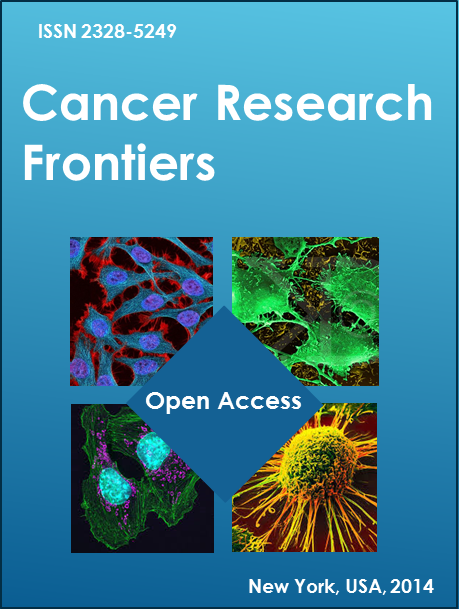Abstract _ Full Text (HTML) _ Full Text (PDF)
Review
Cancer Research Frontiers. 2017; 3(1): 1-28. doi: 10.17980/2017.1
Interplay between the gut microbiota and epithelial innate signaling in colitis-associated colon carcinogenesis
Linda Chia-Hui Yu1, Shu-Chen Wei2, and Yen-Hsuan Ni3*
1Graduate Institute of Physiology, National Taiwan University College of Medicine (e-mail: );
2Department of Internal Medicine, National Taiwan University Hospital (e-mail: ), and
3Department of Pediatrics, National Taiwan University Hospital, Taipei 100, Taiwan (e-mail: )
*Corresponding author: Yen-Hsuan Ni, Professor, Department of Pediatrics, National Taiwan University College of Medicine and Hospital, 7 Chung-Shan South Road, Taipei, Taiwan. E-mail: ; Tel: 886-2-23123456 ext. 71516; Fax: 886-2-23938871.
Citation: Linda Chia-Hui Yu, et al. Interplay between the gut microbiota and epithelial innate signaling in colitis-associated colon carcinogenesis. Cancer Research Frontiers. 2017; 3(1): 1-28. doi: 10.17980/2017.1
Copyright: @ 2017 Linda Chia-Hui Yu, et al. This is an open-access article distributed under the terms of the Creative Commons Attribution License, which permits unrestricted use, distribution, and reproduction in any medium, provided the original author and source are credited.
Competing Interests: The authors declare no competing financial interests.
Received Dec 2, 2016; Revised Mar 9, 2017; Accepted Mar 13, 2017. Published Mar 25, 2017
Abstract
Intestinal microbiota is involved in the maintenance of gut homeostasis as well as the regulation of colitis-associated colorectal tumorigenesis. The aberrant host immune signaling and the presence of opportunistic commensals with potential pathogenic characteristics (pathobionts) have been suggested to be incorporated into the genetic paradigm of colon carcinogenesis. The reciprocal relationship between innate immune response and microbial composition in tumorigenesis is highlighted in this article. A two-hit theory is proposed here that dysregulated host epithelial signaling and dysbiotic microbiota are synergistic factors to drive malignant transformation. Innate immune receptors such as Toll-like receptors (TLRs) and nucleotide-binding oligomerization domain (NOD)-like receptors are involved in colitis-associated carcinogenesis through the regulation of epithelial cell death and proliferation, as well as the shaping of microbial community. From the microbial side, Escherichia coli, Fusobacterium nucleatum, enterotoxigenic Bacteroides fragilis, are identified as pro-tumorigenic pathobionts in colitis-associated tumor models. Probiotics such as Lactobacillus, Bifidobacterium, and butyrate-producing bacteria displayed tumor-suppressing effects. The Gram-negative characteristics of the mucosa-associated pathobionts indicate the involvement of lipopolysaccharide–dependent epithelial CD14/TLR4 signaling in cancer development. Virulence factors of the pathobionts were also identified in causing epithelial genotoxicity and signaling. The mechanistic insights of the interplay between host innate immunity and bacterial composition, and the understanding of how the dysfunction of one impacts on the other, will shed light to the development of novel strategies for the clinical management of inflammatory bowel disease and colon cancers.
Keywords: commensal bacteria, tumor biology, epithelial cells, Toll-like receptors, NOD-like receptors, virulence factors








